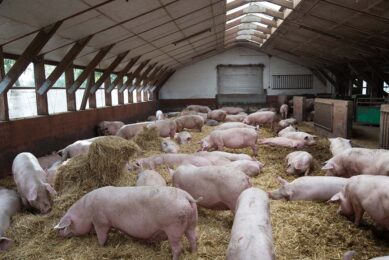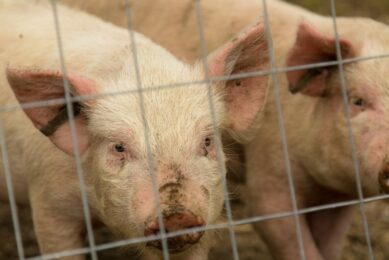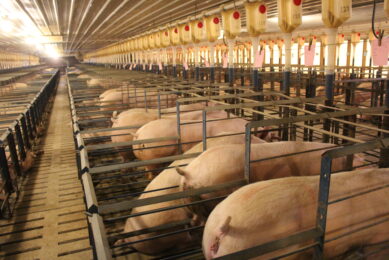7 steps for managing media coverage of pigs

The media are a topical subject at present. As both a journalist and pig production adviser for the majority of his 65 years in pigs, management expert John Gadd has been both interviewer and interviewee on many topical subjects. In this column, he shares some of his experience on how to handle (sometimes hostile) questions in public.
 Powerful ally
Powerful ally
The media is our most powerful ally in getting the true facts known on pig production and eating quality. They are friends, not enemies.
 Your side of the story
Your side of the story
Your side of the story is essential. If you decline an interview you lose the opportunity to get our message across.
 Have facts straight
Have facts straight
You must have your facts straight and to hand. Before agreeing to an interview ask what subjects the reporter wants to cover. Otherwise they will ‘bounce’ you into opinions which can be hurried. Try to avoid doing an interview immediately – returning the call or setting an appointment, is the best strategy.
 Develop your own strategy
Develop your own strategy
Having been made aware of the subject, develop your own strategy for the story. Decide on the main points you want to get across. Think of the questions likely to be made and have your answers ready. This helps you to appear positive and not defensive.
 Keep subjects in mind
Keep subjects in mind
Be sure of your facts. Not too difficult if you retain in your mind the subjects which are topical and could well come up:
- Meat eating;
- Factory farming and cruelty;
- Smell and air pollution;
- Tasteless pork
- Outdoor production ruining the countryside
- Polluting rivers
- The ‘cruel’ farrowing crate
Articles appear in the media all the time giving pros and cons; file them accessibly (you’ll need them in a hurry) and if asked to give an interview, give them a quick look in the short period before the interview. That is why that short delaying strategy is so vital.
 Mitigating problems
Mitigating problems
Back up your statements with what you are doing to mitigate the problem. What money you have spent to avoid or reduce the accusation. Be positive, never defensive.
 Using understandable language
Using understandable language
Speak in a language the public understands. They are unsure what a farrowing crate is and think it is restrictively cruel. Explain that for the sow’s short time in the crate (incidentally don’t call it a ‘crate’ but ‘maternity bed’, for that is what it is in human terms) then tiny defenceless piglets are less likely to be agonisingly crushed by the sow which is heavy and can be clumsy getting up and down. Yes, use emotive language when it helps your case, reporters love it and pick up on it. Again, the public has no idea what a ‘gilt’ is, so describe her and that we accord her special expensive treatment in time and money to encourage good future motherhood. It is positive explanations like this which will dissuade hostile opinions that we are being heartless for the sake of profit.

Expert Dr Monique Pairis-Garcia recently also addressed the complexities related to the swine industry and the media
Doing a media interview
Be honest and direct. If you don’t know an answer, say so. Journalists know when you are trying to hide something and will only poke and pry and make matters worse. Only talk about things you know about, so “Sorry, but that’s not my area” is perfectly allowable in an interview. Try to take control. If you try to do so, you will, in my experience, steer the interview to your key points and make them often. This encourages belief in what you feel.
Be concise. You are an expert at raising pigs and enthusiastic about it. Don’t rabbit on. When you have answered the question and made your points, stop talking! (This has been one of my faults as some of you may have noticed!)
Keep your cool. Journalists and especially vegan activists, may try to bate you and put you on the defensive; take your time and explain your point of view pleasantly. Always be positive – that is more likely to bring antagonists round.

Read more expert opinions at Pig Progress
Courting the media
Keep the media informed and in touch by inviting them to meetings and putting story ideas their way. I’ve done this all my working life. Show an appreciation for well-done stories – a quick complimentary e-mail to the author or his editor.
We pig producers are not pro-active enough. It is too often the faults of some of us which get the coverage, and even our managing bodies are far too slow at issuing immediately the robust and truthful rebuttals on behalf of the rest of us.











